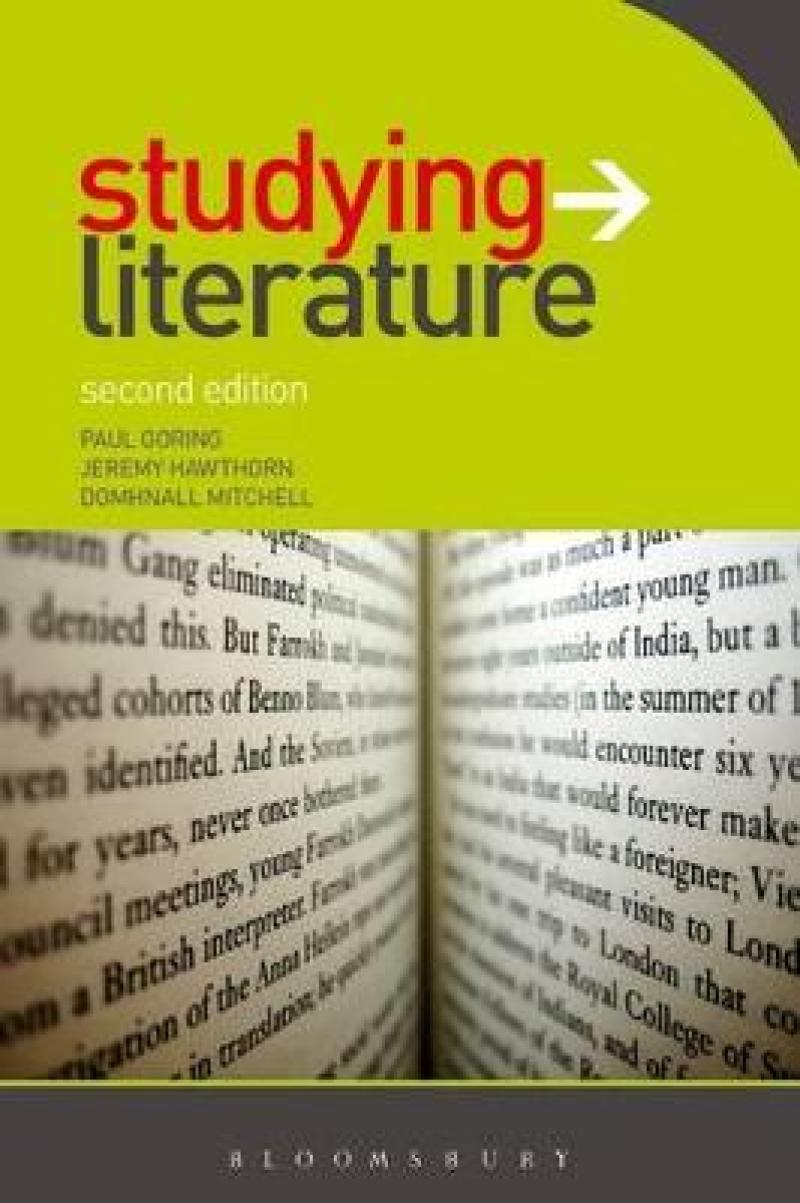Studying Literature: The Essential Companion is a unique guide for English undergraduates. It combines practical advice on study skills with key information on literary theories and theorists, offering invaluable support throughout any English degree. 'Excellent introduction to the mechanics of degree-level study of literature - very practical.' - Professor M Moran, Brunel University, UK 'Clearly set out and there is likely to be something for everyone in most of the five sections.' - Writing in Education
Les mer
Studying Literature combines practical advice on study skills, from using the library to preparation for exams, with a comprehensive overview of literary theories and theorists. It is an ideal introduction to the subject for university students. New to this edition is a section on how to access and effectively use digital resources.
Les mer
Contents Introduction Introducing your companion Using the companion Cross-referencing Section 1: Guide to Studying Literature at University Introduction What type of guide is this? Is such a guide really necessary? 'Literary', 'primary', 'secondary': a note on terminology Getting organised Your degree scheme Preparing for courses Getting the most from lectures, seminars and tutorials Using the library Reading literary texts Reading and studying: general points Reading prose fiction: novels, novellas and short stories Reading drama Reading poetry Literary criticism What is literary criticism? How to find relevant criticism Using criticism Writing essays Analyzing the question Formulating and structuring an argument Applying literary theory in essays Writing Guidelines on presentation/style Plagiarism and how to avoid it Making a presentation Exams Preparation and revision Taking exams Section 2: Guide to the use of electronic resources Some introductory comments Finding primary electronic information Issues of reliability Reading in the electronic age Searching and analyzing electronic texts Finding secondary materials Searching the Internet for literary resources Evaluating online secondary sources Useful sites Documenting electronic media Revising and editing electronically Safety measures Section 3: Theories and approaches Introduction: Living with theory Moliere's Monsieur Jourdain Reinventing the wheel The theoretical 'object' Types of theory Descriptive or prescriptive? Literature-specific? Butcher or biologist? School or theory? Chosen or thrust-upon? Theory and method A note on our groupings Formalisms Russian Formalism The Prague School New Criticism The Hermeneutic tradition Hermeneutics Phenomenology Reception theory Reader-response criticism Structuralism and its progeny Structuralism Semiology/semiotics Narratology Post-structuralism Deconstruction Pragmatics and the reaction against structuralism Speech act theory Psychological and psychoanalytic theories Psychoanalytic criticism Archetypal criticism Cognitive criticism 'Isms' Marxist theory and criticism The Frankfurt School New historicism and cultural materialism Thing theory Postcolonialism Ecocriticism Feminism Queer theory Section 4: Guide to literary theorists Mikhail Bakhtin Roland Barthes Simone de Beauvoir Walter Benjamin Homi K. Bhabha Harold Bloom Bertolt Brecht Helene Cixous Jacques Derrida Terry Eagleton Umberto Eco T.S. Eliot William Empson Stanley Fish Michel Foucault Northrop Frye Henry Louis Gates, Jr Gerard Genette Sandra Gilbert and Susan Gubar Lucien Goldmann Stephen Jay Greenblatt E.D. Hirsch Jr bell hooks Luce Irigaray Wolfgang Iser Roman Jakobson Fredric Jameson Julia Kristeva Jacques Lacan F.R. Leavis Georg Lukacs Jean-Francois Lyotard Jerome McGann Paul de Man J. Hillis Miller Kate Millett Franco Moretti James Phelan Vladimir Propp I.A. Richards Paul Ricoeur Edward Said Ferdinand de Saussure Viktor Shklovsky Elaine Showalter Gayatri Chakravorty Spivak Tzvetan Todorov Rene Wellek Raymond Williams Virginia Woolf Section 5: Glossary of literary and theoretical terms Bibliography Index
Les mer
Excellent introduction to the mechanics of degree-level study of literature - very practical. Professor M Moran, Brunel University, UK Clearly set out and there is likely to be something for everyone in most of the five sections. Writing in Education
Les mer
A study skills guide combined with an overview of literary theories makes for a one-stop reference that can be used throughout your English degree The study skills section prepares you for your course with advice on using the library to essay writing, and for your exams with tips on revision and preparation The digital resource section provides information on how to use Google Books and sites such as Facebook, as well as the pros and cons of using Wikipedia Understanding literary theory is essential to all English degrees and this section outlines the main theories in a clear and comprehensive way Literary theorists are profiled to ensure that you have a comprehensive grounding in the subject
Les mer
A study skills guide combined with an overview of literary theories makes for a one-stop reference that can be used throughout your English degree
Produktdetaljer
ISBN
9780340985120
Publisert
2010-08-02
Utgave
2. utgave
Utgiver
Vendor
Hodder Arnold
Vekt
746 gr
Høyde
234 mm
Bredde
156 mm
Dybde
34 mm
Aldersnivå
UU, 05
Språk
Product language
Engelsk
Format
Product format
Heftet
Antall sider
480
